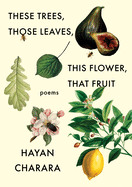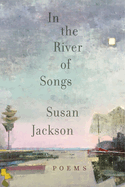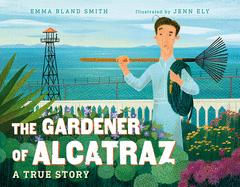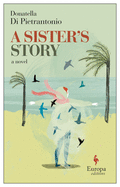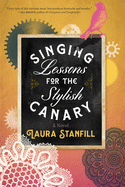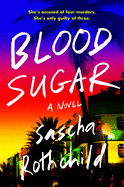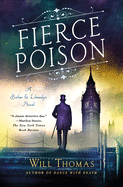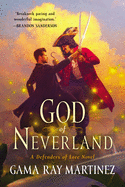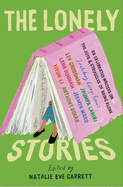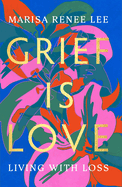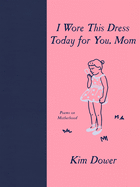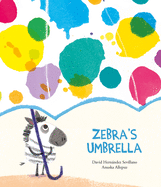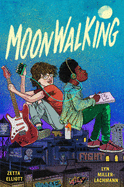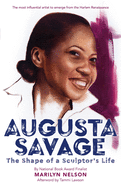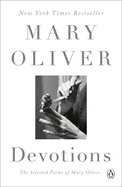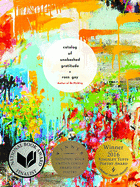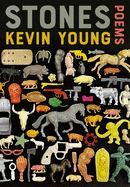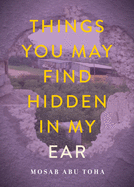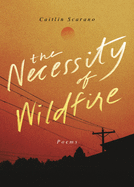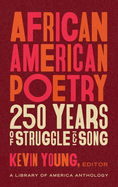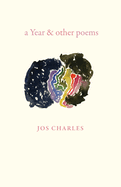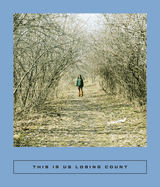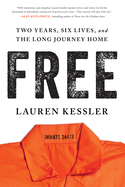Friday, April 22, 2022
Welcome to our Poetry issue! Among our reviews in this issue: first-generation Lebanese American poet Hayan Charara's These Trees, Those Leaves, This Flower, That Fruit; and Susan Jackson's In the River of Songs, whose poems gild everyday experiences and unbearable losses with spiritual significance. In the picture-book bio The Gardener of Alcatraz by Emma Bland Smith, illustrated by Jenn Ely, an incarcerated counterfeiter discovers his green thumb. Plus, author and editor Chris Martin discusses his desire to create a community of care and inclusion in launching his poetry imprint, Multiverse.
A Sister's Story
by Donatella Di Pietrantonio, transl. by Ann Goldstein
Award-winning Italian writer Donatella Di Pietrantonio made her English-language debut with the lauded A Girl Returned, deftly translated from the Italian by Ann Goldstein (best known for her elegant Elena Ferrante translations). Author and translator return to the characters from their earlier collaboration with A Sister’s Story, another simmering, intense novel of dysfunctional relationships and destructive secrets that proves equally strong as a companion sequel or standalone title.
A literature professor at the University of Grenoble is pulled from her class to answer an urgent phone call. An unfamiliar voice urges her immediately back to coastal Pescara, Italy, where a terrible accident has befallen her younger sister, Adriana. Narrating the journey home, toward a fraught sororal reunion, the protagonist--writing intimately in first person, ignoring temporal linearity--reveals years of complications and connections shared (and not), especially between sisters.
Adriana and the narrator are the only daughters among five (living) children in a struggling, combative, working-class family. The narrator, however, was raised by an aunt and uncle in "the city," and for much of their lives, Adriana "has never been tactful, she interjects herself into everything that has to do with me as if it were also hers," the narrator observes.
Di Pietrantonio radiantly conjures small, piercing moments that linger between characters, turning sparsely written pages into surprisingly dense examinations of resonating reactions and enduring consequences: a fish Adriana expertly guts and cooks, a tiny mosquito in a gelato shop, an errant hair mixed into tagliatelle. Her sharp examinations haunt and illuminate, transforming the quotidian into the indelibly literary. --Terry Hong, Smithsonian BookDragon
Discover: Award-winning Italian novelist Donatella Di Pietrantonio's second translated import is another piercing examination of dysfunctional family relationships.
Singing Lessons for the Stylish Canary
by Laura Stanfill
Singing Lessons for the Stylish Canary, Laura Stanfill's debut novel with a folktale style as lyrical as its melodious title, beckons readers to the rainy but inviting 19th-century French village of Mireville. The women of the town produce lace, and the men, specialty music boxes. Then suddenly a baby appears, one who exhibits magical powers.
On the day in 1814 when colicky Georges Blanchard stops crying, Mireville's waterlogged gloom ends as "gray gave way to blue with an ebullient gold centerpiece." Georges, hailed as the "Sun-Bringer," goes to New York at age 21 to secure orders for the famous Mireville serinettes, music boxes created to train canaries to replicate their songs. Georges is delighted when Delia, an irrepressible purveyor of canaries, welcomes him with a warm intimacy. He returns to Mireville to marry and then father Henri, a sensitive boy "longing to prove himself" to Papa. To Georges, Henri was "the music of his life. Except, as it turns out, another melody had taken root as well."
This whimsical historical fantasy belongs to Henri's generation, including Henri's best friend Aimee, the clever village girls of her Shadow Council of Apprentice Lacemakers and the other "melody," known only by Delia's letters from New York. Bursting with imagery ("Fall cranked itself into winter," writes Stanfill, "then spring, one season playing into the next without a rest or a breath mark between them"), the novel unexpectedly turns dark, then adventurous. One evil act drives both Henri and Aimee from France but, returning to its happily-ever-after mood of whimsy, the story journeys to a new world, with surprising assistance from a kindred spirit. --Cheryl McKeon, Book House of Stuyvesant Plaza, Albany, N.Y.
Discover: In this whimsical historical novel, one miraculous event in a French village known for its expert craftspeople alters the community.
Mystery & Thriller
Blood Sugar
by Sascha Rothchild
Sascha Rothchild (How to Get Divorced by 30) draws readers into a suspenseful and disturbing character study of an unrepentant killer in Blood Sugar, her first novel.
It isn't Ruby Simon's fault people have a habit of turning up dead around her, even if she did murder them. When, at the age of five, she drowned a seven-year-old boy, she "waited for guilt to set in. But it never did." She did it to protect her sister, whom the boy bullied. As a teen, she felt no guilt for killing a friend's father when he tried to assault her. She's gotten away with it, until now. Thanks to the sudden death of Ruby's husband, Jason, Detective Keith Jackson has noticed the trail of bodies in her wake and is convinced she murdered her spouse. Caught in a game of cat and mouse, Ruby pleads her case to readers in chapters alternating between her past crimes and her present predicament. Of course she didn't kill her husband, she insists. She's only killed two people. Well, to be precise, she did kill a third victim and failed to mention it to readers up front. Still, even if she killed three people and lied to readers, she still wouldn't murder the man she loved and lie to readers. Honest.
Rothchild perfectly paces the shifts between humanizing her narrator to make her tension over the investigation sympathetic and dropping bombshell reminders that Ruby is a cold-blooded killer. This disturbing thriller begs to be inhaled in a single sitting. --Jaclyn Fulwood, blogger at Infinite Reads
Discover: Although she's killed three people, an unreliable narrator insists she didn't murder her husband in this provocative, unsettling psychological thriller.
Fierce Poison: A Barker & Llewelyn Novel
by Will Thomas
Fierce Poison, a stylish and entertaining homage to the stories of Sherlock Holmes, is the 13th novel in the Barker & Llewelyn series from author Will Thomas (Dance with Death). Set in London in 1893, the novel follows Thomas's tradition of mixing the cerebral with action through well-defined characters, and featuring private inquiry agent Cyrus Barker--well-versed in myriad self-defense techniques, gleaned from his global experiences--and the scholarly Thomas Llewelyn, once unjustly imprisoned.
The brain-and-brawn approach works well in Fierce Poison, in which Barker and Llewelyn track a murderer with a high body count. Roland Fitzhugh, a respected member of Parliament, bursts into the detectives' office, asks for water and then dies before taking a sip. They soon learn that, less than an hour before his death, Fitzhugh had complained to Scotland Yard that someone had been trying to poison him. In an attempt to find out if Fitzhugh really was poisoned, the detectives gain a client: Prime Minister William Gladstone, who insists he will pay the detectives to find out what happened. Their investigation barely begins when an East End family is also poisoned. The link seems to be raspberry tarts, which a street vendor had given to one of the children.
Thomas keeps the suspense high as the brisk plot reaches a believable finale, making the most of the friendship between Barker and Llewelyn and their mutual respect. A hint at Barker's mysterious past adds flavor to Fierce Poison. --Oline H. Cogdill, freelance reviewer
Discover: The comingling of brain and brawn in 1893 London continues to elevate Will Thomas's series featuring private inquiry agents Cyrus Barker and Thomas Llewelyn.
Science Fiction & Fantasy
God of Neverland: A Defenders of Lore Novel
by Gama Ray Martinez
God of Neverland will charm fans of J.M. Barrie's original Peter Pan and the many retellings and interpretations that have followed.
Michael Darling never wanted to return to Neverland. He is the last of the Lost Boys to remember his time there, but he's put all of that behind him now. Sure, he followed that period of childhood adventure by joining the Knights of the Round, a secret organization fighting to protect humanity from the supernatural. But he chose to walk away from that and engage in as ordinary a life as possible--that is, until the Knights summon him. They inform him that Peter Pan has gone missing, which will have dire consequences for Neverland and all children. Despite his longing for a normal life, Michael finds himself heading back to that mysterious island, which is just past the second star to the right and straight on until morning.
Gama Ray Martinez (Beastwalker) brings readers swashbuckling pirate duels, encounters with mermaids and appearances by beloved characters such as Wendy Darling and Tinkerbell. But there are also ghosts, witches, a trip to the Underworld and plenty of monsters to battle. If sometimes slow-paced and predictable, it is still an enjoyable story that occasionally probes with poignancy the space between childhood and adulthood. By rejoining the Darlings on this slightly darker adventure, readers--much like Michael--might just remember how to tap into their own memories as well as the very spirit of childhood belief. --Michelle Anya Anjirbag, freelance reviewer
Discover: This nostalgic and charming return to Neverland poses questions about childhood, adulthood and how to keep believing.
Essays & Criticism
The Lonely Stories: 22 Celebrated Writers on the Joys & Struggles of Being Alone
by Natalie Eve Garrett, editor
Nobody likes loneliness, but aloneness? It has its perks. Such is the consensus among the contributors that editor Natalie Eve Garrett (Eat Joy: Stories & Comfort Food from 31 Celebrated Writers) assembles for her gutsy and illuminating anthology, The Lonely Stories: 22 Celebrated Writers on the Joys & Struggles of Being Alone.
Though each of her contributors has a different take on being lonely, more than one writer touches on the particular flavor of loneliness that accompanies grief, being an immigrant or living through the Covid-19 pandemic. For one writer, the loneliness of a loveless marriage is ultimately cured by aloneness. Several contributors remark on the stigma of going solo, and a couple note a double standard: in "A Strange and Difficult Joy," Helena Fitzgerald observes that in popular culture "we have 'the bachelor pad' and 'the bachelor lifestyle' but no such phrases for women."
Garrett opts for an elastic definition of "alone," and it serves The Lonely Stories well. Of the clutch of contributors who take the word literally, such as those who describe attending writerly retreats, all revel in the social isolation, although Lev Grossman cautions against indulging in the romance of solitude too soon. He writes in the hilariously self-deprecating "Maine Man" about his "voyage of literary self-discovery" right out of college: artists "didn't need other people.... My little chrysalis of genius was going to seat one and one only." It was one too many, because six months of only Lev Grossman was all Lev Grossman could take. --Nell Beram, author and freelance writer
Discover: The 22 contributors to this emotionally intrepid anthology have wide-ranging experiences with loneliness, but they share a feeling about being alone: they love it.
Psychology & Self-Help
Grief Is Love: Living with Loss
by Marisa Renee Lee
In the beautiful and thought-provoking Grief Is Love: Living with Loss, Marisa Renee Lee explores the idea of grief as love, coming to understand grief not as something to "get over" but rather a constant presence that stands as a testament to those we've loved and lost. Lee's own journey involving grief started early. Her mother was diagnosed with multiple sclerosis and, later, stage 4 breast cancer, and then Renee herself experienced a miscarriage and fertility problems. She writes with candor about her grief, first repressing and denying it but eventually working her way toward giving herself permission to grieve "out loud."
As much as Lee draws on her own experiences to shape Grief Is Love, the book is not so much a memoir as a kind of personal guide, both for those grieving and those seeking to support someone through loss. Within that, Lee places grief in a 21st-century American context, identifying the role of race in grieving as well as the magnitude of grief brought about by the Covid-19 pandemic. "We can no longer afford to ignore grief," she writes, "to relegate it to whispered conversations, to expect folks to navigate their brokenheartedness on their own." Grief Is Love is, in a way, a call to action, but more so a call to compassion: let us not grieve alone or ask others to, Lee suggests. There is power and healing in community and in standing together to acknowledge the weight of loss and what it means to go on living when someone we love does not. --Kerry McHugh, freelance writer
Discover: A personal and heartfelt guide to living with loss, written by an author who has dealt with her own grief in facing infertility and the death of her mother.
Poetry
These Trees, Those Leaves, This Flower, That Fruit
by Hayan Charara
Poet Hayan Charara (Something Sinister), the first-generation American son of Lebanese immigrants, is a multifaceted writer, equally comfortable in the long, languid line and the short poem, terse and biting. His fourth poetry collection, These Trees, Those Leaves, This Flower, That Fruit, shows off his range, starting with its gorgeous title. Taken from a line in the poem "Under the Sun," the title demonstrates the poet's facility with cadence, whether a rhythmic pulse standing alone or in the midst of this longer poem, which asks, "Which is holier,/ oak or linden?/ The pleasure of the oak,/ the sorrow of the linden." This follows the first poem in the collection, "Self-Portrait in Retrospect," a short gut-punch of a piece on age, beauty and identity. Most of the poems in the first section are brief, including a section of "Unresolved Haiku."
Following a section break, Charara turns to longer pieces, each line lengthening and each poem teetering on the edge between prose and poetry. This section, broken into two long poems, draws on the words of others, whether biblical or Homeric allusions in "Prelude" or the interwoven quotes in "Fugue" from sources such as Alan Watts and Philip Levine. These selections are also more overtly political, addressing issues of war, racism and the implications of the word terrorism. The final section returns to the style of the first, with wry reflections on loss and grief, asking: "To what wisdom/ does suffering/ give birth?/ --and must we always/ learn from it?" Charara offers few answers but insists the questions themselves are worthwhile. --Sara Beth West, freelance reviewer and librarian
Discover: Equally comfortable in long, languid lines and short poems, Hayan Charara explores personal and national identity.
In the River of Songs
by Susan Jackson
In the stirring poetry collection In the River of Songs, Susan Jackson (Through a Gate of Trees) gilds everyday experiences and unbearable losses with spiritual significance.
"So what lasts?" Jackson asks. "All the people of my family are gone/ and mourned and I am alone save for you." Yet the book's opening poem, "The Woman Who Loved Trees," posits that grief can be transformed and that there might be beauty in change: after beloved cottonwoods are cut down, the space they leave becomes "a singing bowl" and "solitude became her companion/ in her changed landscape." This search for what is hidden and sacred is a pattern in the book. As a piece about her late mother's dementia concludes, "here I thought this poem/ was about what's lost/ but instead turns out to be for every unexpected gift we're/ given."
Jackson's subject matter includes the momentous: her father's death when she was young, the time she witnessed a woman drop dead at an art fair, and a soap bubble that serves as a metaphor for life's transience. At other times the poems touch on the ordinary: making beds, cutting peonies in the garden, watching fledgling wrens or peeling a clementine. Joy is found in simple things, like a perfect boiled egg or a massage. The poetry includes gorgeous nature imagery and alliteration, which will appeal to fans of Mary Oliver. Its up-to-date conscience alludes to Covid-19 and the murder of George Floyd. But the outlook, one that finds "a wedge of eternity" in daily life, feels timeless. --Rebecca Foster, freelance reviewer, proofreader and blogger at Bookish Beck
Discover: In this timeless collection of 39 stirring poems, nature and the sacred counteract the grief of everyday life.
I Wore This Dress Today for You, Mom
by Kim Dower
Kim Dower's I Wore This Dress Today for You, Mom finds the former City Poet Laureate of West Hollywood celebrating a colorful mosaic of mothering moments that range from the spiritual to the practical. This poetry collection also pays homage to the matriarchs in her life, including her Russian grandmother, and their different mothering styles.
Widely admired for her ability to texturize the everyday with the sublime, Dower (Sunbathing on Tyrone Power's Grave) captures with poetic grace exquisite remembrances of childhood and the special pains and pleasures of mothering a child about to fly the nest. In "I Lost My Mother in Bloomingdale's," the author tries on a frilly bathing suit when she realizes with horror that her mentally fragile mom has left the store without any ID or money. The title poem, suffused with tenderness, touches upon the core of a mother-daughter relationship and the desire to please one's parent, while "There Will Be Things You Do" relishes the inherited behaviors that are passed on through generations. Dower explores female physicality with a splendid ode to breasts, thanking them for their companionship, and describes such mundane experiences as getting a root canal and doing the dishes with vibrant imagery.
Featuring gorgeous gems from Dower's four poetry collections and new pieces energized by the sheer power of her wit and irreverent style, I Wore This Dress Today for You, Mom will make readers both groan at and delight in recognition of the everyday absurdities and magical moments that add up to a lifetime of irreplaceable memories. --Shahina Piyarali, reviewer
Discover: A beloved California poet embraces the everyday joys and frustrations of mothering and celebrates the mother-child bond.
Children's & Young Adult
The Gardener of Alcatraz: A True Story
by Emma Bland Smith, illus. by Jenn Ely
Here's the thing, see: with The Gardener of Alcatraz: A True Story, Emma Bland Smith and Jenn Ely have created this really terrific picture book biography of a crook who turned his life around. And get this: the narrator sounds like an old-movie tough guy right outta the story's setting! As the narrator puts it after the crook goes straight, "Swell!"
What happens is, after this guy Elliott Michener gets busted for counterfeiting, he's sent to Alcatraz, the roughest, toughest prison there is. At first Michener isn't sold on rehabilitation--he figures he'll break out and maybe take up counterfeiting again, or else knock off a bank. But when he finds a key in the prison yard, does he try it in every gate at the joint? Naw--he turns in the key! So the guards let Michener help with the gardening. And holy smokes, the jailbird likes the job! Sure, maybe not for the right reason at first....
With The Gardener of Alcatraz, Smith (The Pig War) has produced a humane and moving story, and Ely (If You Were a Kid Building a Pyramid) captures the emotional nub of every scene, using a gloomier palette to reflect Michener's darker days and a brighter one to reflect his expanding horizons. Back matter offers historical context (the year that Michener landed at Alcatraz--1941--is curiously missing from the main text) and discusses changing attitudes toward rehabilitation: "Today experts know that giving incarcerated people meaningful work is important and worthwhile." Swell! --Nell Beram, freelance writer and YA author
Discover: This outstanding picture book biography of a prisoner who (eventually) turns his life around is told with hilarious old-movie-tough-guy omniscient narration.
Zebra's Umbrella
by David Hernández Sevillano, illus. by Anuska Allepuz
David Hernández Sevillano's deceptively simple text and Anuska Allepuz's clever use of perspective and space splendidly combine in the endearing Zebra's Umbrella.
When rainfall on the savanna catches a group of animals off guard, they inquire one by one if they can take shelter under Zebra's colorful umbrella. Zebra is generous with his space and continues to make room as the rain's intensity increases. At first the animals contentedly sip hot chocolate and enjoy "stories, riddles, games and songs" while waiting for the rain to subside.
Allepuz (The Boy, the Bird, and the Coffin Maker) cleverly uses the book's gutter to highlight sudden unspoken tension among the animals. A soaking Lion, positioned on the edge of the right page, approaches the group of fearful animals, placed at the edge of the left page. Zebra alleviates the uneasiness by setting a boundary: "You're getting wet. Come on under. But there will be no biting us!" The subsequent wordless full spread zooms in on Rhinoceros, Lion and Elephant, whose angled eyes and raised eyebrows reveal a mix of uncertainty and suspicion. When the perspective zooms back out, the animals are once again--safely--enjoying stories, riddles, games and songs. As the sun begins to shine, Lion smiles and questions Zebra, "Why is your umbrella so colorful?" Zebra's response is at once reassuring and surprising: "So you can find me when it's raining."
Sevillano and Allepuz use a combination of disparate creatures and subtle nods to predator and prey animals to model themes of generosity and acceptance in this sweet picture book. --Kieran Slattery, freelance reviewer, teacher, co-creator of Gender Inclusive Classrooms
Discover: A group of prey and predator animals find common ground when they seek shelter during a rainstorm in this sweet picture book about understanding and friendship.
Moonwalking
by Zetta Elliott and Lyn Miller-Lachmann
In the captivating middle-grade novel Moonwalking, two boys in 1980s Brooklyn form an unlikely friendship through music and art. Co-authors Zetta Elliott (Dragons in a Bag) and Lyn Miller-Lachmann (Rogue) use poetry to tell the delicate and painful story of the boys' short-lived friendship.
Joseph John "JJ" Pankowski is the new kid at school, and one of the only white and Polish faces in a sea of brown. Afro-Latinx Pierre "Pie" Velez is a math and history genius as well as a graffiti artist. When Pie sees JJ (who was told by his old school that he had "pervasive developmental disorder") being mistreated in the cafeteria, he invites him to have lunch in the art room. The middle schoolers, both with difficult home lives, connect through their love of the arts--JJ loves punk rock and Pie is fascinated with Jean-Michel Basquiat's work. The pair quickly become friends, but their relationship is threatened when Pie is caught tagging a building and almost arrested.
Elliott and Miller-Lachmann use dual points of view to bring this heartwarming but also painful novel-in-verse to life. The authors' deliberate styles highlight the difference between the boys--Miller-Lachmann writes JJ through short, multilayered poems with text that is sometimes scattered across the page; Elliott's Pie text is fluid, musical and intentional. They delicately cover topics that include interracial friendships, abuse, mental health, immigration, disabilities, class and the sense of belonging in language that is easily accessible to middle-grade readers. --Natasha Harris, freelance reviewer
Discover: In this heartfelt collection of poems for middle-grade readers, two boys in 1980s Brooklyn form an unlikely friendship.
Celebrate Poetry Month
The Writer's Life
Chris Martin: Poetry as Mutual Flourishing
 |
|
| Chris Martin (photo: Mary Austin Speaker) |
|
When someone asks me to define poetry, I often feel like their question goes against the very nature of poetry itself. In my experience, poetry is far less interested in what is than what might be. This desire, to understand the full breadth of what language can do, is one of the founding impulses behind Multiverse, the series of neurodivergent writing that I curate for Milkweed Editions. The poems you'll find in Multiverse books are not normal. They do not conform to standardization. They do not attempt to mimic the accepted modes of intelligence. Instead, the poems you'll find in Multiverse titles move in ways that are utterly unique to their authors, who are deeply invested in forging authentic connections with their readers.
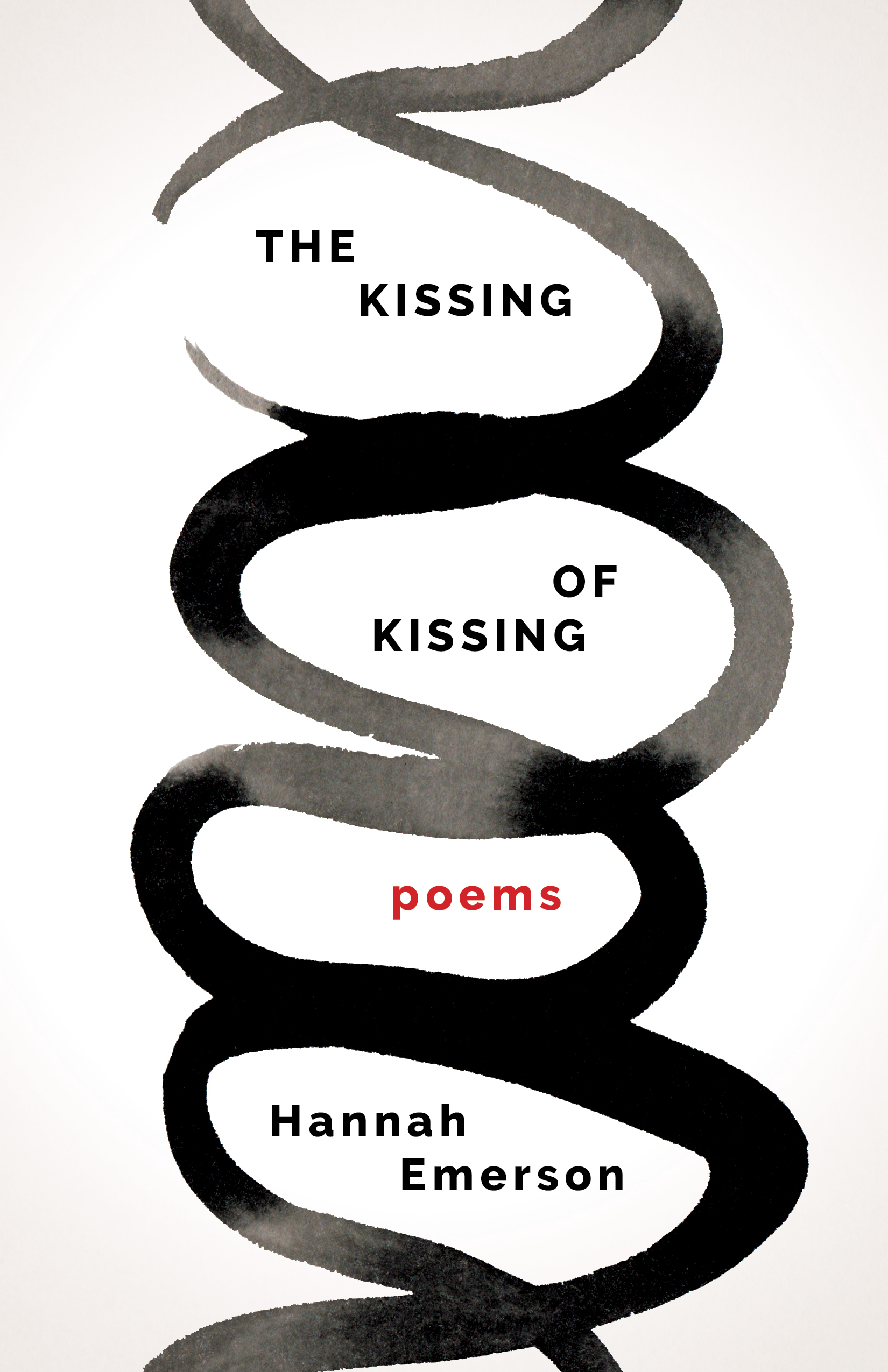 Take Hannah Emerson, for example. Her debut collection, The Kissing of Kissing, uses words that are common--please, beautiful, freedom, nothing--but by wielding those words in a way only she can, they become new again. This is not coincidental to her experience as a nonspeaking autistic individual. Because Emerson cannot move through the world along the path laid out by an ableist society, she has had to blaze a new path, and her language moves differently as well. Her unique style has drawn comparisons with other singular talents: Rumi, Emily Dickinson and Rainer Maria Rilke among them. And her book, just out in the world, has already received the attention and care of several reviewers--Barrelhouse, Luna Luna, the New York Times--each with their own connection to the work. In her poem "Giveness," she writes, "Please listen / to the poet because only way // to freedom from the fools. Just / keep the fools inside us loving / fool forgive him. It is ok to be / the fool you are helping / this great universe explode."
Take Hannah Emerson, for example. Her debut collection, The Kissing of Kissing, uses words that are common--please, beautiful, freedom, nothing--but by wielding those words in a way only she can, they become new again. This is not coincidental to her experience as a nonspeaking autistic individual. Because Emerson cannot move through the world along the path laid out by an ableist society, she has had to blaze a new path, and her language moves differently as well. Her unique style has drawn comparisons with other singular talents: Rumi, Emily Dickinson and Rainer Maria Rilke among them. And her book, just out in the world, has already received the attention and care of several reviewers--Barrelhouse, Luna Luna, the New York Times--each with their own connection to the work. In her poem "Giveness," she writes, "Please listen / to the poet because only way // to freedom from the fools. Just / keep the fools inside us loving / fool forgive him. It is ok to be / the fool you are helping / this great universe explode."
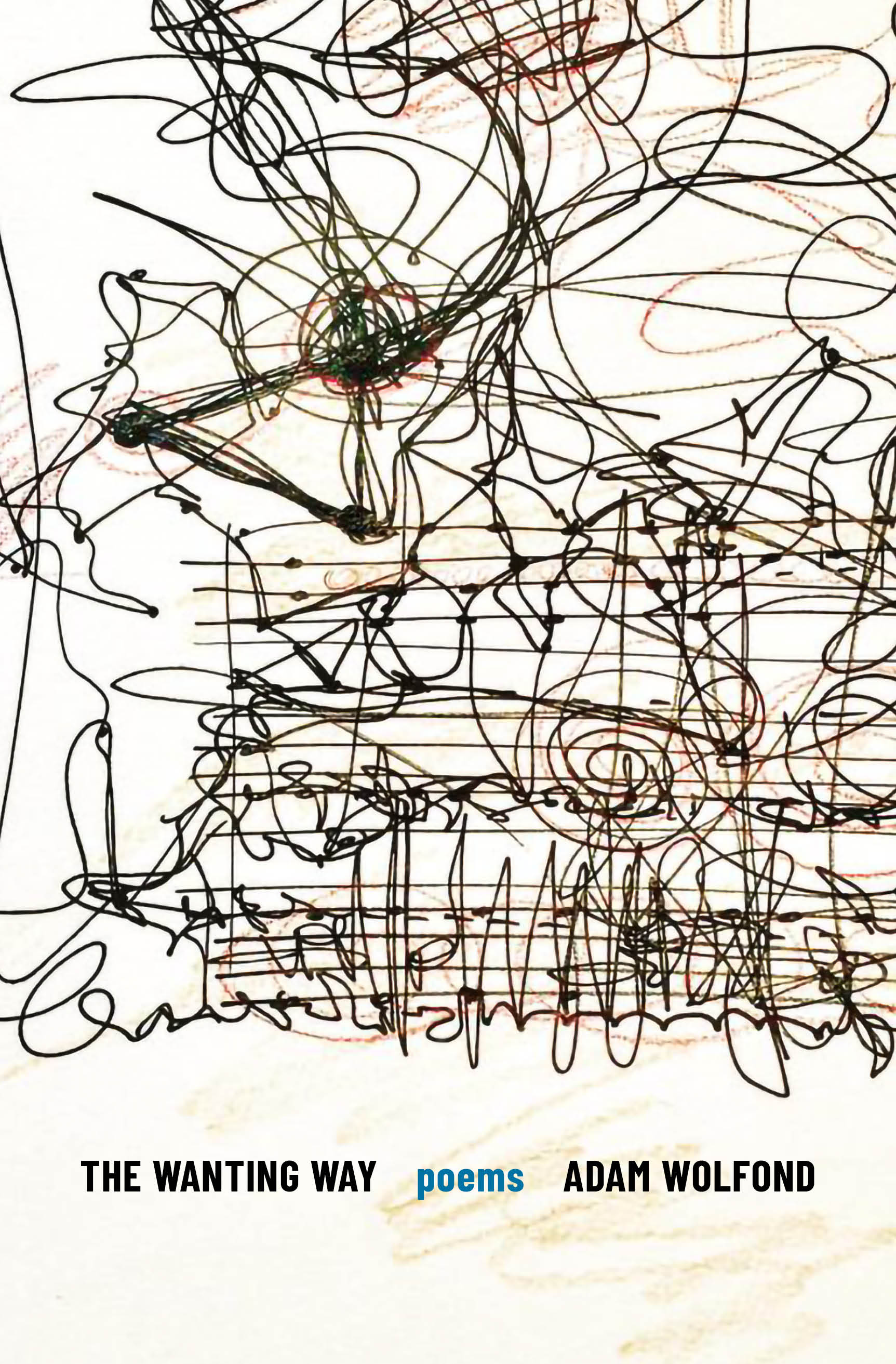 As our universe explodes and expands, we find that it is actually an overlap of endless universes. One universe would symbolize a singular verse, but Emerson is not a singular exception. Her work takes place alongside countless neurodivergent writers, surfacing in concert with many other universes of language. The second book in the Multiverse series will be Adam Wolfond's The Wanting Way, which will arrive this November. Though Wolfond is also a nonspeaking autistic poet (and artist), his way of "languaging" is quite different from Emerson's. In "The Maker of Wanting Space," he writes, "I game the space the way / I open with the body and the way / I think which is the way / of water." So, even though the book proclaims a wanting way, this way is actually composed of multiple ways, body becoming architecture becoming sky becoming river. The book itself will feature a looping blue line that "yarns" its way through the pages, circling words as it goes, and a "ponding" or marginalia that spreads across the bottom of each page. Wolfond's desire for ways that reconnect us with the world and with ourselves reminds me of authors like Robert Macfarlane and Dara McAnulty.
As our universe explodes and expands, we find that it is actually an overlap of endless universes. One universe would symbolize a singular verse, but Emerson is not a singular exception. Her work takes place alongside countless neurodivergent writers, surfacing in concert with many other universes of language. The second book in the Multiverse series will be Adam Wolfond's The Wanting Way, which will arrive this November. Though Wolfond is also a nonspeaking autistic poet (and artist), his way of "languaging" is quite different from Emerson's. In "The Maker of Wanting Space," he writes, "I game the space the way / I open with the body and the way / I think which is the way / of water." So, even though the book proclaims a wanting way, this way is actually composed of multiple ways, body becoming architecture becoming sky becoming river. The book itself will feature a looping blue line that "yarns" its way through the pages, circling words as it goes, and a "ponding" or marginalia that spreads across the bottom of each page. Wolfond's desire for ways that reconnect us with the world and with ourselves reminds me of authors like Robert Macfarlane and Dara McAnulty.
The third author in the Multiverse series will be JJJJJerome Ellis, a musician and writer whose own experience of dysfluency, in the form of a glottal block stutter, makes him feel kindred with nonspeaking writers. For Ellis, dysfluency isn't an obstacle but an opening. His first book, The Clearing, functions as a prequel to the concerns in his forthcoming Multiverse book, *ster of ceremonies. Among them are questions like these: How can we let disability instruct us? How does care towards the body echo out into the more-than-human world? How do moments of pause allow us to hear what would otherwise be passed by? For Ellis, these questions require ceremony and community. They are questions to be shared and explored together. Ellis envisions writing among a chorus of the living and the dead, ancestors and contemporaries. And among a wild chorus of flora and fauna, relatives who possess their own recourse to voice and wisdom. In this approach, his work speaks alongside writers like Alexis Pauline Gumbs, adrienne maree brown and Robin Wall Kimmerer.
My greatest ambition is that Multiverse might constitute a community of care and for that community to be inclusive in the way it connects the often marginalized communities of neurodivergent, disabled, Mad, queer, neuroqueer, autistic, dysfluent, and BIPOC writers and readers. My experience in reading the books mentioned above is one of creative expansion, deep listening, and something that I can only call healing. And I think that's what I want most from books: to grow, learn, and uncover new territories (often beneath of our very feet) where flourishing is mutual. --Chris Martin
Chris Martin is editor-at-large of Multiverse, "a literary series dedicated to different ways of languaging," which recently launched as an imprint of Milkweed Editions. Martin is also the author of May Tomorrow Be Awake: On Poetry, Autism, and Our Neurodiverse Future (HarperCollins, August 9).
Book Candy
Book Candy
"Is it one word or two?" Merriam-Webster answered eternal questions like: "Is it alot or a lot? Everyday or every day?"
"New York Public Library makes banned books available for free," NPR reported.
Mental Floss explained "why Norwegians love to read crime novels called 'påskekrims' during Easter."
"The Rembrandt book bracelet: behold a functional bracelet featuring 1,400 Rembrandt drawings." (via Open Culture)
Free: Two Years, Six Lives, and the Long Journey Home
by Lauren Kessler
In the piercing, poignant Free: Two Years, Six Lives, and the Long Journey Home, reporter and prolific author Lauren Kessler explores the reality that is mass incarceration in the United States. In her previous book A Grip of Time, Kessler chronicled her experience running a years-long writing group for "lifers" in a maximum-security prison. The trust granted to her by the people in that project, and this one, is remarkable. In Free, Kessler explores six specific individuals' stories, via audio, video and text records, and deeply candid, thorough interviews. Many of their loved ones offer additional perspective. The result is riveting. Unforgettable.
Our incarceration numbers are staggering. "With just 5 percent of the world's population, the United States accounts for close to 25 percent of the world's prison population. One out of every six Latino boys... can expect to go to prison in his lifetime. One out of every three Black kids... will spend time behind bars. (For white kids, the figure is one out of seventeen.)" According to United Nations databases, the U.S. incarceration rate is higher than those in Russia, China and North Korea. "On any given day one-third of adult Americans are either incarcerated, on probation, or on parole."
By focusing on six nuanced portraits, Kessler captures the complex panorama of a system that encompasses those incarcerated, their loved ones and those affected by the crimes. All six were convicted of serious offenses. All underwent long-term incarceration, and many were under 18 when convicted. They are men and women of various ages and racial identities, powerfully sharing their experiences in prison, and--if and when released--their experiences beginning reentry.
Among those whose stories Kessler covers are Arnoldo, Sterling, Travis, Catherine, Dave and Vicki. Several were convicted of murder; there's struggles with addiction; histories of abuse are rampant. But in Kessler's telling, neither crimes nor circumstances make up the full picture. They are kind, complicated, flawed, generous, nervous, repentant and sincere. Above all, they're people.
Kessler acknowledges an inevitable question: Why care? Shouldn't those who do wrong be punished? Of course, it's not so simple. But in addition to the myriad ways people are not treated equally in the U.S. legal system, Kessler suggests an alternative motivation for caring: selfishness. After all, she points out, 95% of those incarcerated get out at some point, rejoining society: "Their kids sit in classrooms next to our kids. They are our neighbors. Living inside cages behind walls can have profound effects on personality and behavior, on health and attitude, on what kind of person rejoins our community." There are obvious needs for the system to "work." Yet, reentry itself is complicated, full of barriers and challenges. Kessler relays a memorable anecdote about attending a simulation exercise designed to help volunteers interested in learning more about the penal system better understand its difficulties. Even the simulation exercise requires counselors to be on-hand to comfort the participants--who are willing and motivated to be there and learn. But the hourlong exercise that has them practice navigating services and requirements can be crushing. And people recently released from prison to find their paths are rarely so well supported in the extraordinarily complicated steps reentry demands.
This is the crux of Free. Through stories, Kessler asks us to reckon with fundamental questions--what is justice? what is rehabilitation?--alongside the fundamental facts of the barriers facing those who go through a system that doesn't often seem to deliver either. Nor does it seem to prepare its occupants for "successful" reentry. Still, as Kessler makes poignantly, painstakingly clear throughout, much of the data is far more complicated than the numbers suggest. While 68% of those released are rearrested within three years, situations differ. People differ. What "successful" looks like differs.
Kessler spotlights the movement for Restorative Justice while still making room to share the difficulties for victims' families in considering this approach. In yet another unforgettable chapter, Kessler recalls a parole hearing for Sterling, in which she is among the speakers advocating for his release. But his victims' parents speak, too, and their words likewise reverberate on the page. It's riveting in Kessler's retelling, painful from every angle. The situation, like so many others, asks additional hard questions. Kessler wonders: "Short of 'an eye for an eye,' what is a life 'worth'? How much punishment is enough? Is any punishment enough?"
Kessler braids in hope and celebrates resilience; Free might otherwise be an impossible read. She also builds in critical space to remind readers of just how many stories remain untold or unheard. Again, the stakes are high: "We want those who have done harm to us to suffer, to pay for what they did," Kessler writes, "But in making them suffer, we create the kind of human beings we do not want back in our communities."
Change in our prison system has long been needed, and the chaos and cruelties wrought by Covid-19 on people in prison, both those serving time and those staffing the facilities they all share, highlight the grave stakes. For readers in the U.S., Free is a sobering, necessary mirror. What does this system say about us? Where will we go from here, and how--and most urgently, when? --Katie Weed
On Stories as Survival
An Interview With Lauren Kessler
 Lauren Kessler is an award-winning author, immersion reporter and speaker. She has written 10 books of narrative nonfiction, including A Grip of Time and Dancing with Rose: Finding Life in the Land of Alzheimer's. Her book Free: Two Years, Six Lives, and the Long Journey Home, available now from Sourcebooks, creates nuanced portraits of six incarcerated individuals. Kessler lives in the Pacific Northwest.
Lauren Kessler is an award-winning author, immersion reporter and speaker. She has written 10 books of narrative nonfiction, including A Grip of Time and Dancing with Rose: Finding Life in the Land of Alzheimer's. Her book Free: Two Years, Six Lives, and the Long Journey Home, available now from Sourcebooks, creates nuanced portraits of six incarcerated individuals. Kessler lives in the Pacific Northwest.
The emotional heft of Free comes from your movingly rendered stories of the people therein. You say, "Information does not equal understanding.... You understand the world you live in by learning stories from the world you live in." How might we learn to consider more of the stories around us to better understand the systems in which we coexist?
We humans are storytelling animals. Stories are how we make sense (or don't) of the world, how we learn about others, how we come to understand ourselves. We have evolved to be this way. Our brains are wired this way. Stories are, literally, how we survive. So, I don't think we need to foster a sense of the importance of story or persuade folks about the power of story. That is inborn. I think we need to fire up or reignite--or at least not extinguish--curiosity. We seem to have gotten less and less curious. Or our curiosity is too easily satisfied. A Wikipedia entry, a podcast, a quickie TED Talk--sure, okay. But we should be seeking a much deeper level of understanding--especially of those whose lives and paths are very different from our own.
And we should not be frightened by stories that make us uncomfortable, by lives that are difficult to understand. We should seek them out and learn from them. This has been my personal intention with Free and with my previous book that focuses on the incarcerated, Grip of Time. I hope that readers come to this work curious and openhearted.
How do you see the relationship between attitudes of white supremacy and mass incarceration? How might we work toward restorative justice with people in BIPOC communities in the U.S. as the current system continues to harm and disenfranchise them so disproportionately?
This is such a complex--and existentially important--question. The staggering racial inequities we see in our U.S. prison population are the result of a fatally broken system of criminal justice which too often has nothing to do with justice, and a deeply divided, deeply inequitable culture in which true equality is seen as a zero-sum game. How do we begin to work together to create, from the ground up, a truly equitable culture? How do we even frame the conversation? Could reparations be part of a response? I want to listen to the voices of those harmed for guidance on this matter.
Details of the experiences of those who have been incarcerated long-term speak volumes: the excitement over trying a caramel Frappuccino, or savoring a yogurt parfait with actual fresh fruit. How do you decide what your process looks like, or which details to include?
Spending so much time with the six people in Free, not peppering them with questions like an interviewer would, but rather sitting with them, listening to them, observing them living their lives--that's where these details come from. My focus is their focus. I started out my writing life as a traditional journalist, essentially controlling the narrative by controlling the conversation. That is: I ask questions that are important to ME, and I wait for the response. That's not how I work anymore. Now I spend most of my time listening and watching. I have learned far more from the work of cultural anthropologists than I have from the work of journalists--the exception being Joan Didion, whose powers of observation, whose ability to remain still and silent, were/are astonishing.
To what extent does our prison system contribute to the need to "humanize" the people incarcerated within it?
Our system of incarceration is designed specifically to de-humanize people, to rob them not just of their freedom (yes, that is the punishment) but to also rob them of their identity--they are a number--their self-worth, their opportunity to make any meaningful decisions, their ability to control any aspect of their environment. Is this "justice served"? Are these the "lessons" we want the incarcerated to learn during their imprisonment? They are released to our world, where they are faced with decision after decision, big and small, where a sense of self is foundational to making your way. This internal readjustment, this relearning what it means to be human... it's the hardest part of the journey from caged to free.
How might readers of your book thoughtfully bring these conversations to those who've not yet read it?
Let's say you did something wrong. You get punished. That's the way our justice system works: the goal is to stop wrongdoing, and punishment is the response. Restorative justice defines wrongdoing as causing harm. It defines justice as attempting to understand and repair that harm. If you want to talk to friends and family about this, the questions to prompt discussions, I think, are: What is justice? What does it mean to "pay" for a crime? What is our justice system supposed to accomplish? Does it do that? What if we focused on taking responsibility and making amends and not purely on retribution?
Early on, you quote criminologist Howard Zehr: "Trauma untransformed is trauma transferred." As Free comes out amid the continuing pandemic, are there lessons we can learn about how to transform trauma experienced during these years of isolation?
This is such an important discussion to have now that millions of us have experienced in some very "lite" and minor way what it means to be isolated, to be deprived of meaningful contact with others, to have severely limited choices, to feel confined. How have these past two-plus years affected our physical health? Our emotional and psychological well-being? Now imagine living an astronomically intensified version of such a life--for 25 or 30 years. I am hoping these pandemic experiences can fuel meaningful dialog leading to prison reform.
"[Sterling] thinks I have taught him a lot," you write. "It is nothing compared to what he has taught me." What are some of the most meaningful or surprising things he has taught you?
I feel like any answer here will be incomplete because the relationship Sterling and I have is forever deepening. But, for starters: celebrate that which does not crush you. Speak truth to power, even when your voice is a whisper and theirs is a shout. Know the odds are against you--and do it anyway. Persevere beyond any previous conception you had of what perseverance entailed. When all else fails: Bob Marley and M&Ms. --Katie Weed
Rediscover
Rediscover: The Penguin Book of the Prose Poem
 French literary critic Michael Riffaterre called prose poetry a "genre with an oxymoron for a name." The Penguin Book of the Prose Poem: From Baudelaire to Anne Carson, edited by British critic Jeremy Noel-Tod, creates "an alternative history of modern poetry" with the prose poem at its center, beginning some 150 years ago with Charles Baudelaire, Emma Lazarus, Oscar Wilde and Ivan Turgenev. The form has since been used by writers as varied as Margaret Atwood, Allen Ginsberg, Gertrude Stein, Jorge Luis Borges, Adrienne Rich, Lu Xun, Czeslaw Milosz and Eileen Myles. Serbian American poet Charles Simic won the 1990 Pulitzer Prize for Poetry for his prose poem collection The World Doesn't End, was a finalist for two other Pulitzer Prizes, and in 2007 was appointed the fifteenth U.S. Poet Laureate.
French literary critic Michael Riffaterre called prose poetry a "genre with an oxymoron for a name." The Penguin Book of the Prose Poem: From Baudelaire to Anne Carson, edited by British critic Jeremy Noel-Tod, creates "an alternative history of modern poetry" with the prose poem at its center, beginning some 150 years ago with Charles Baudelaire, Emma Lazarus, Oscar Wilde and Ivan Turgenev. The form has since been used by writers as varied as Margaret Atwood, Allen Ginsberg, Gertrude Stein, Jorge Luis Borges, Adrienne Rich, Lu Xun, Czeslaw Milosz and Eileen Myles. Serbian American poet Charles Simic won the 1990 Pulitzer Prize for Poetry for his prose poem collection The World Doesn't End, was a finalist for two other Pulitzer Prizes, and in 2007 was appointed the fifteenth U.S. Poet Laureate.
"A prose poem is a poem without line breaks. Beyond that, both its manner and its matter resist generalization," writes Jeremy Noel-Tod. "What strikes me is the prose poem's wayward relationship to its own form--and it is this, I believe, that makes it the defining poetic invention of modernity. In an age of mass literacy, our lives are enmeshed in networks of sentences and paragraphs as extensive as any urban grid. The prose poem drives the reading mind beyond the city limits." The Penguin Book of the Prose Poem is available from Penguin Classics ($18). --Tobias Mutter


